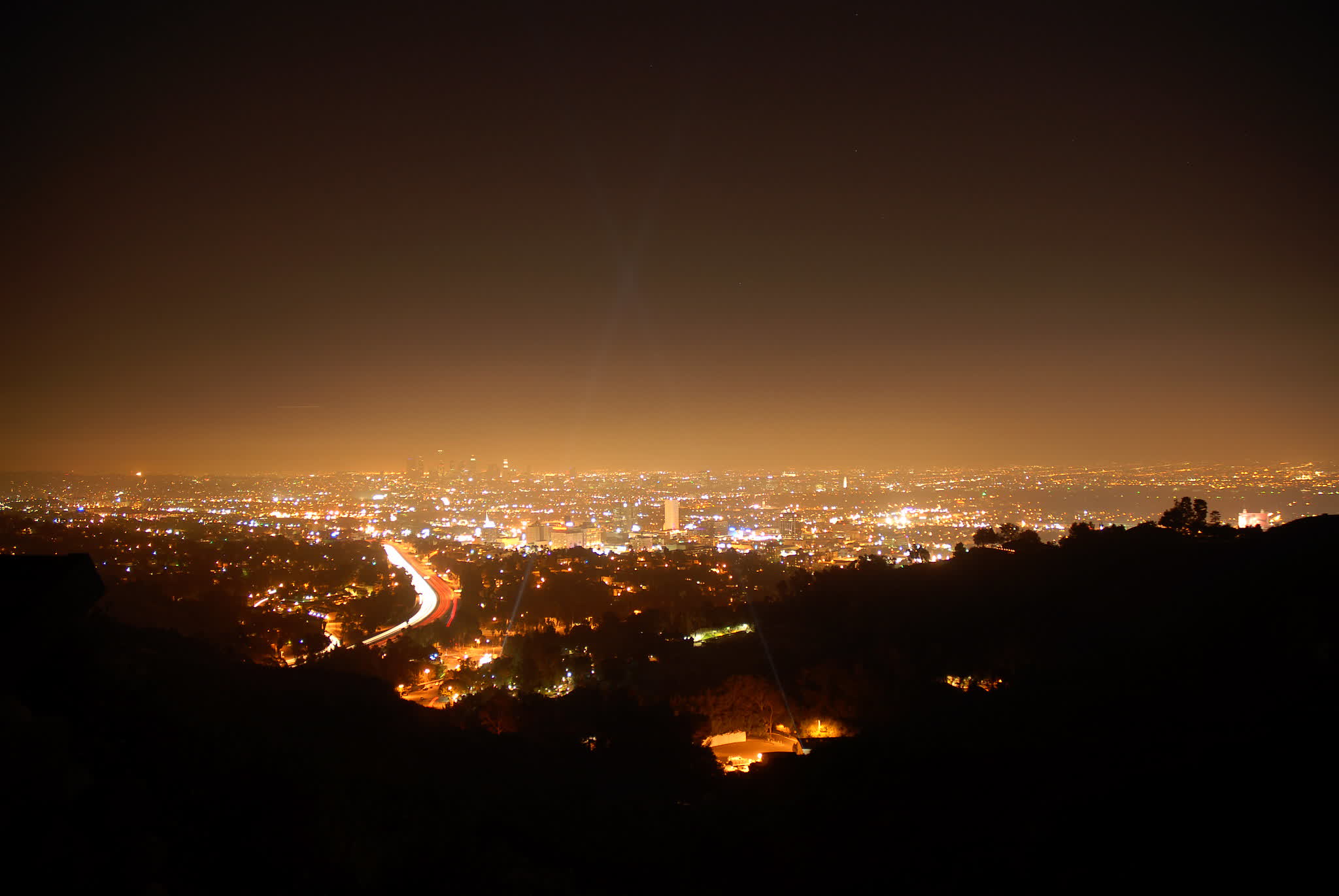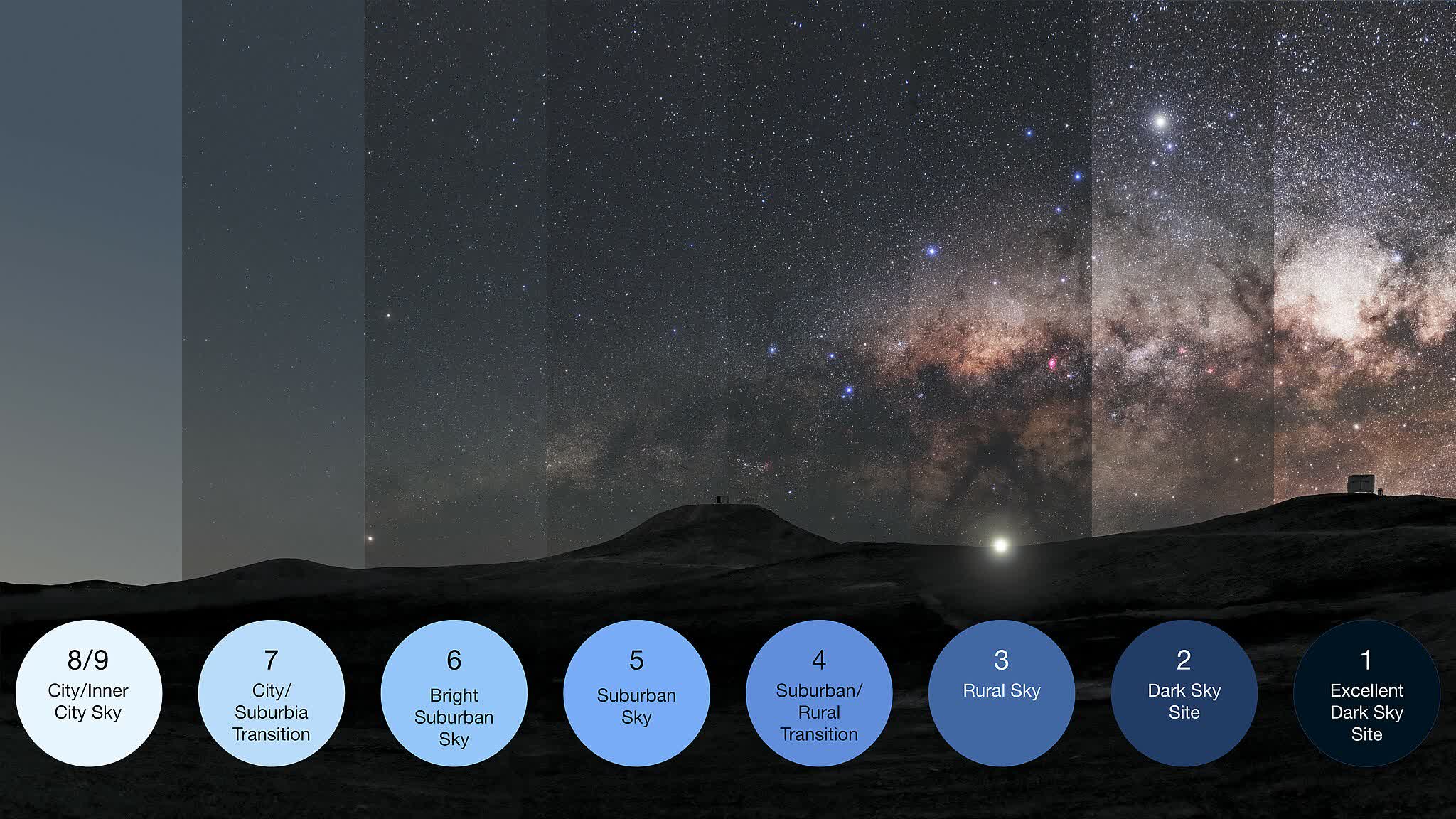In brief: What do you see when you look toward the sky at night? Unless you live somewhere pretty remote, there are unlikely to be many visible stars, if any. Light pollution is taking away the night sky, to the extent that astronomers have come up with a new name for this phenomenon: noctalgia, which means sky grief.
The world has never been brighter. The move to more efficient LED lights has exacerbated the light pollution problem thanks to the lower energy costs associated with these light-emitting diodes, meaning they're usually left running longer, sometimes 24/7, and often in outdoor areas.
Outdoor illumination grew at around 3% to 6% per year in the second half of the 20th century. Artificially lit outdoor areas grew by 2.2% from 2012 to 2015, while total radiance growth increased by 1.8%. In a recent study, it was found that the Earth's sky has gotten brighter by about 9.6% every year since 2011.
Space.com notes that the problem has become so bad that only the remotest deserts, wilderness areas, and oceans can now be considered places with skies as dark as those viewed by our ancestors.
But even these locations are getting brighter. The launch of satellite communication "constellations" such as SpaceX's Starlink are scattering and reflecting sunlight from their solar arrays, increasing the brightness of skies around the world. It's estimated that even the darkest of skies are 10% brighter than they were 50 years ago.
John Barentine, an astronomer and science communicator, and Aparna Venkatesan, a professor of Physics and Astronomy at the University of San Francisco, have come up with a term for our continuing loss of the night sky, hoping to draw more attention to the issue. As reported in a paper in the preprint database arXiv and a letter to the journal Science, it's called "noctalgia," a reference to "sky grief," the sense of loss that comes from no longer being able to see all the stars and constellations of the night sky.
The researchers wrote that noctalgia represents far more than the mere loss of environment. Humanity is also witnessing the loss of heritage, place-based language, identity, storytelling, millennia-old sky traditions, and "our ability to conduct traditional practices grounded in the ecological integrity of what we call home."
Efforts are in place to deal with light-pollution, including dark-sky reserves and the installation of night-friendly lighting, such as lights that turn off automatically at night or only point to the ground. Convincing Elon Musk to cut back on the number of Starlink satellites being sent into space might be another matter, though.

